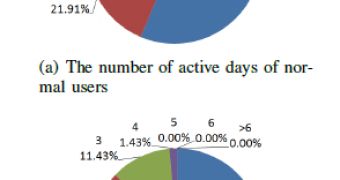A group of researchers from the University of Victoria and the Peking University released a study in which they try to differentiate the legitimate posters from the paid posters known in China as the Internet Water Army.
They claim that paid posting became a job for the members of the Water Army, since they're willing to post anything, anywhere if they're paid accordingly. They will launch new threads, post comments and articles on websites, in most cases with a hidden agenda in mind.
In their paper called “Battling the Internet Water Army: Detection of Hidden Paid Posters,” they highlight the fact that this phenomenon could have a negative impact on online communities since everything they post tries to shift opinions and guide the masses toward a certain business market or event.
These minions are well instructed on what they have to do and each time they have a precise message they have to transmit, but it's not easy for them either, as they're not only paid based on the quantity of their work, but also for its quality.
Cheng Chen, one of the researchers involved in the project, went undercover to find out how the system works with the purpose of identifying a mechanism that could tell apart legitimate content from the one placed by paid posters.
By studying two major Chinese websites and the comments they host, they tried to figure out the pattern used by the Water Army. In order to do this, they manually went through all the comments posted on Sina.com and Sohu.com, numbering in total around 22,000.
The figures show that 84.3% of the ones considered to be paid posters, have less that 50% of posts being replies, while normal users tend to post more replies than new comments.
Regarding the time it takes to post, the results reveal that half of the alleged paid posters publish something every 2.5 minutes.
Unlike regular users, Water Army members also tend to copy and paste their messages from one page to another, something that's illegal on many websites, but only if they get caught.
To make it easier for website owners to detect such posts, the researchers even developed a piece of software that detects paid posters with an accuracy of 88%.
“As future work, we plan to further improve our detection system and extend our research to other relevant areas, such as network marketing,” concludes the paper.

 14 DAY TRIAL //
14 DAY TRIAL //